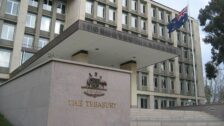Reprieve in sight for franked distributions funded by capital raisings
The Senate Economics Legislative Committee has recommended the government review its plan to restrict companies from buying back shares at a discount using franking credits, giving hope to businesses and other stakeholders who argue the restrictions could unfairly affect legitimate practice.
The two proposed amendments aim to prevent franking credits stemming from capital raisings and share buybacks, which the government says will save $600 million per year.
Concerns have been raised that the legislation drafted is too broad, however, with its net catching legitimate small to mid-sized companies trying to grow by raising equity capital. The new law could force these companies to turn to debt as a funding mechanism rather than equity.
“The current scope of this bill creates some uncertainty whether certain capital raisings could be deemed unfrankable despite those capital raisings not being intended to fund any dividend or distribution,” stated Australian Banking Association head of economic policy Emma Penzo (pictured) in the ABA’s submission to the proposal.
“The ABA believes that legislative certainty and clarity is of paramount importance for banks when looking to raise capital to ensure that market-standard capital management actions are not inadvertently caught by the Bill.”
The ABA wants the legislation reviewed with an option to narrowing down the scope of capital raisings affected by the change. “It is clear that APRA intended (and intends) for banks to use dividend reinvestment plans and other capital raising activities to support their capital position,” the ABA stated.
The Self-Managed Superannuation Fund (SMSF) Association says the proposal “would affect legitimate commercial activity and competitively disadvantage profitable and growing companies”, and welcomed the committee’s decision to recommend that the government review’s the plan.
“This is a positive outcome, recognising what we argued in our submission – that the proposed amendments needed to be much more targeted,” stated SMSF Association CEO Peter Burgess.
“The Senate Committee’s decision now gives the government the opportunity to clarify the amendments to ensure they appropriately target the identified behaviour and not create a situation where legitimate business behaviour is unfairly penalised,” he continued.
“As we argued in our submission, there are many legitimate situations where the dividend paid by a company would not pass the proposed established practice test and as a result would be ineligible for franking.”
*This story was first published in The Inside Investor











